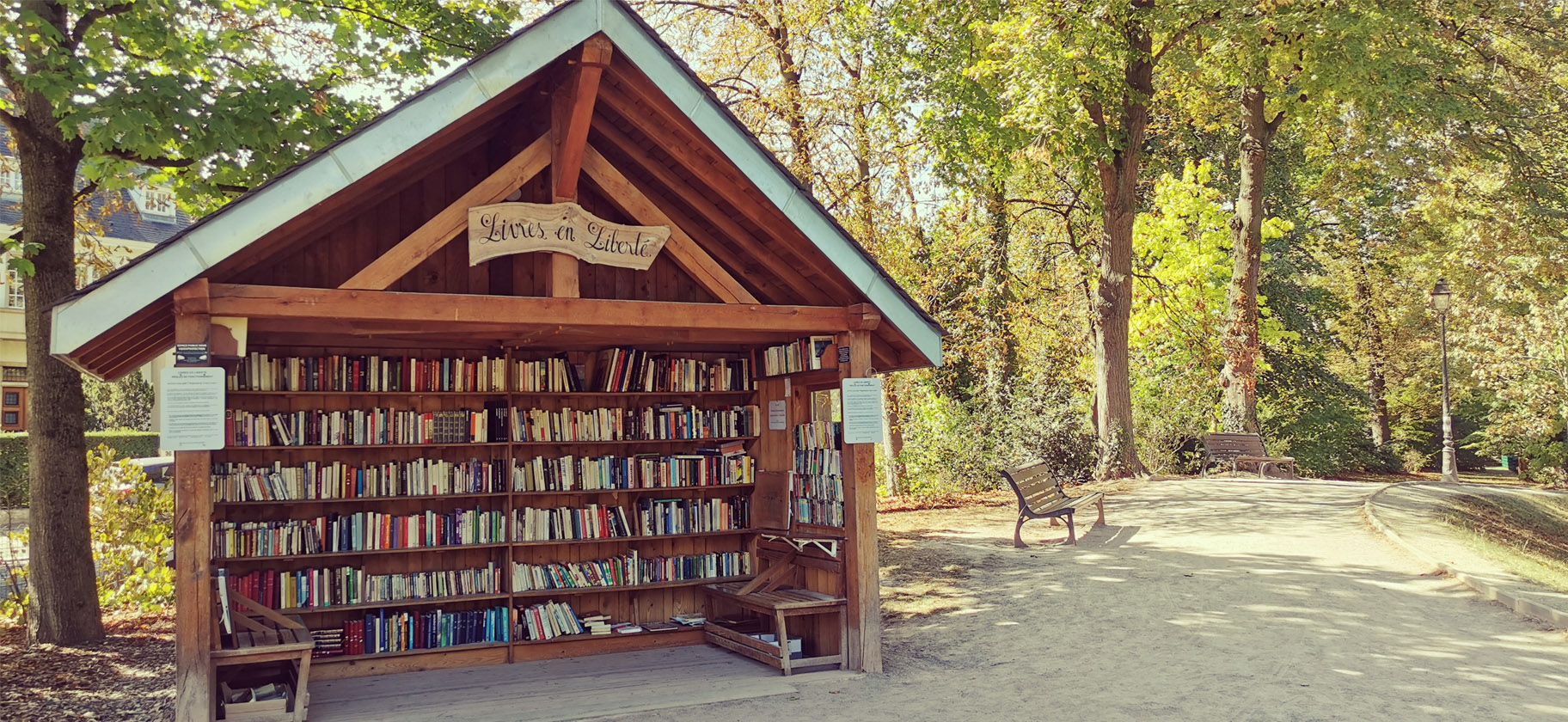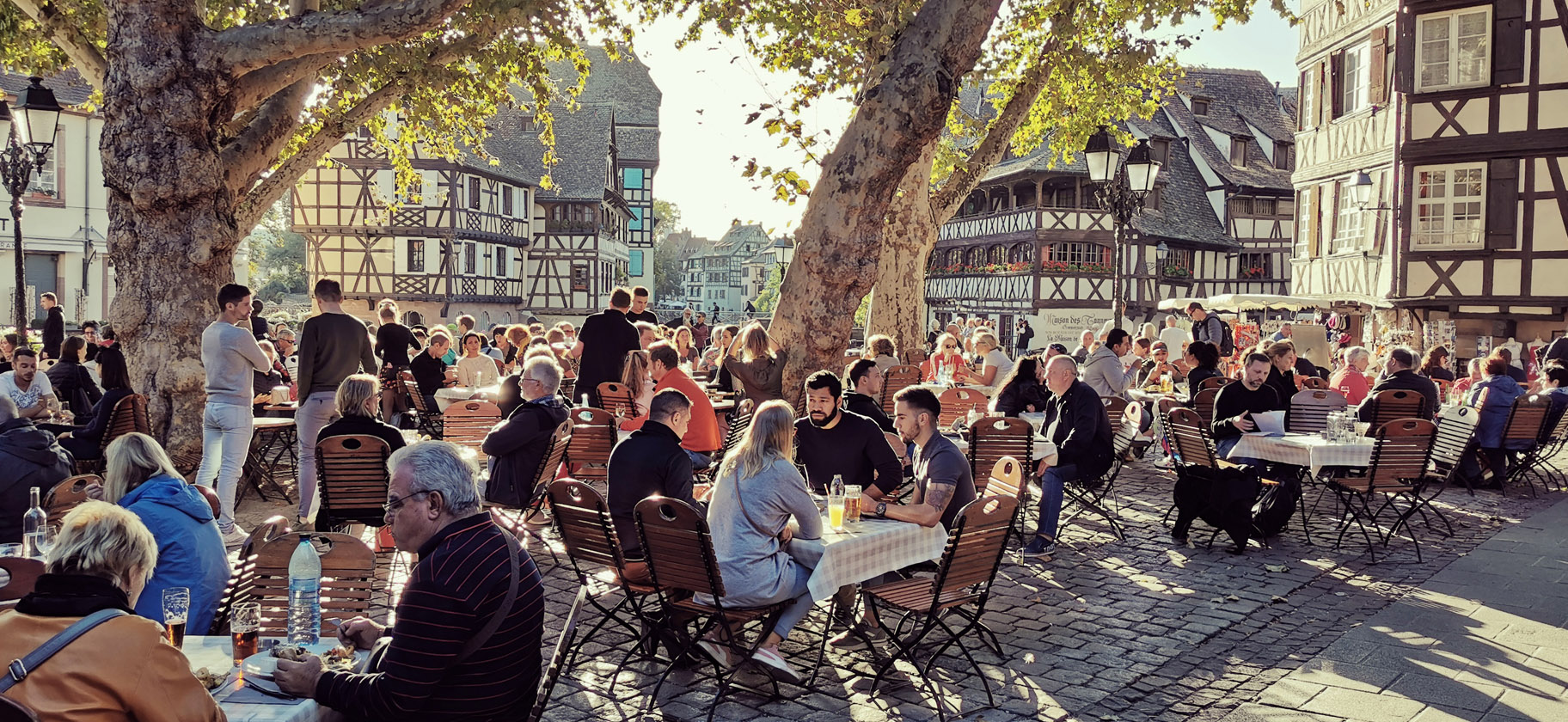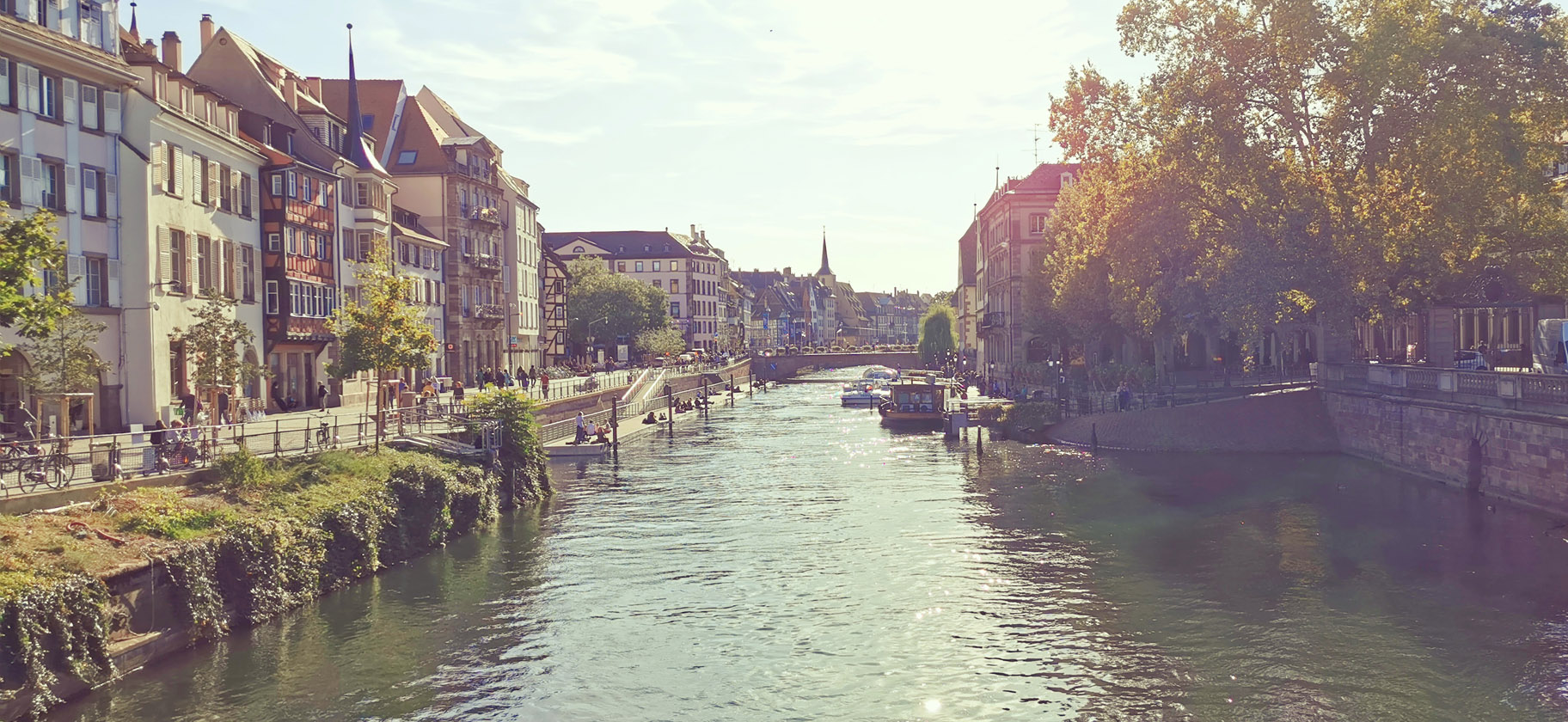Papillon – Free Books in Orangerie Park

Strasbourg sits quietly on the western bank of the Rhine and represents the best of the French and German cultures that have fought over it for centuries. Today, during this long peace, it is a bridge rather than a point of dispute. It is a place that brings people together and, along with Brussels and Luxembourg, is one of the three main capitals of the European Union. The sublime city centre, just to the east of the Gare Central, is located on an island in the river Ill that runs parallel to the Rhine. Most of the action takes place between Place Kléber and the Carré d’Or, but it is the neighbourhoods of Poincaré, Neustadt, Krutenau, Esplanade, Vauban, and Orangerie, that surround the city centre where the charm and grace of Strasbourg’s character are most richly felt. Lush parks and lively avenues make strolling through these areas an absolute joy. The quays that run along the river facilitate navigating on foot, and watching boats and swans glide down the river can be a wonderful way to spend a weekend. In the northeast corner of the city lies the coveted borough of Orangerie which is home to the city’s finest park which houses a garden, a castle, and a small zoo. It was while strolling through this magical place that I was suddenly swept back in time 20 years.
 This was, admittedly, my first ever visit to Strasbourg but it was here that I came across a mysterious wooden hut that was home to some hundred books – mostly French, but some in other languages. It’s important to always have a book on hand to read, especially when you are travelling, so I could not pass up the opportunity to pick one up. I scanned the shelves hoping to find something that could pique my curiosity.
This was, admittedly, my first ever visit to Strasbourg but it was here that I came across a mysterious wooden hut that was home to some hundred books – mostly French, but some in other languages. It’s important to always have a book on hand to read, especially when you are travelling, so I could not pass up the opportunity to pick one up. I scanned the shelves hoping to find something that could pique my curiosity.
After a short while I was joined by another gentlemen looking for something to read and we began a casual conversation. Within a few moments one particular title stood out. Sitting there on the shelf was a French copy of the book Papillon. I was so dumbstruck that I didn’t notice that the man had asked me a question. He snapped me out of my stupor and I was forced to apologize and explain what had made my attention go astray. I pulled out the book and showed him and asked if he knew this book. After some back and forth over the details of the films that had been adapted from it over the years, he admitted that he had heard of it, but had never read the book. Against my will, tears began to well up in my eyes and he asked me if I was okay. Were I to share every detail of the story behind that sudden wave emotion I would have had him there all day, so I chose my words carefully so as to be brief but still explain why the title of that book was able to elicit such a strong reaction from me.
Il était une fois… when I was 19 I flew to Paris. All my friends went to university, but I decided to take a gap year and gathered all the money I had saved over the last couple of years in order to go backpacking through Europe. It was the first time I had ever travelled alone and when I arrived I was terrified and felt like I had made a terrible choice. My first few days travelling were filled with so much anxiety and doubt that I questioned what it was that possessed me to go travelling in the first place. There is no set schedule when you are travelling – no job to go to; no classes to attend; no boob tube to tune out in front of – so it’s important to find things to fill some time. After a few days in Paris I decided I needed to have a book to read. It was the thing to do to remind me to occasionally stop walking and just have a seat. In order to find a book to read I was given directions to a small used book shop that is no longer in operation called, Tea and Tattered Pages in the 6ieme arrondissement. It was there that I found a used English copy of Papillon that I purchased for a few francs.
Written by Henri Charrière in 1969, Papillion tells the tale of his wrongful murder conviction, life sentence, and eventual escape from a penal colony in Cayenne, in French Guiana. Earning the nickname ‘Papillion’ because of the tattoo of a butterfly emblazoned on his chest, the initial motivation for his escape hinges solely on revenge as he vows to bring his own sense of justice to those who put him on Devil’s Island. During his many attempts at escape, he spends an unprecedented amount of time being beaten into submission in solitary confinement but refuses to accept his fate. Eventually, merely yearning to be free replaces his quest for revenge and is the driving force that provides the motivation, and willingness to make the right sacrifices, to effectively escape the physical prison of Devil’s Island, and the spiritual prison of seeking freedom for the wrong reasons. Like the butterfly that refuses to live in captivity, one of the major themes of the book is to live free or not at all.
Those first few days of travelling had sucked the life out of me, but reading Papillon brought me back and I’ve never been afraid since. Sure enough, after backpacking through Europe I eventually returned home to Canada and attended university. I tried having regular jobs but it never went very well. For a long time, the only thing on my resume that I took pride in was all those places I had been and all of the things I had seen and all of the adventures I had had. But employers are less enthusiastic about hiring someone who might not feel totally fulfilled by the work environment they provide. Even when my financial situation got desperate, it wasn’t uncommon for human resources representatives to say, “I’m not sure the job we have available will be stimulating enough for you.”
Eventually, I was able to cobble together enough money and went on more adventures. Whether it was a job, or a relationship, each epic adventure I set out on seemed to come after breaking away from some kind of spiritual prison that I had, whether I knew it or not, been trapped in. I have been fortunate enough to stay out of physical prisons, but the mental and emotional ones can be tough to spot and I’ve locked myself up in a few. A steady paycheque is comforting, as is someone you trust by your side, but they can keep us from fully examining our freedom.
 Caged birds do sing, but a butterfly, in captivity, is doomed to die. On my trip from Montreal to Panama I had a butterfly tattooed on my chest to remind me of those times and those trips that I’ve taken where I have felt completely free. Like anyone, I have had some shocks to my system. I’ve lost a lot and watched people I cared for so deeply walk in and out of my life. But each shock has sent me to the mirror to see the butterfly on my chest and remind me that losing something is nothing more than the chance to break free and set off on another adventure.
Caged birds do sing, but a butterfly, in captivity, is doomed to die. On my trip from Montreal to Panama I had a butterfly tattooed on my chest to remind me of those times and those trips that I’ve taken where I have felt completely free. Like anyone, I have had some shocks to my system. I’ve lost a lot and watched people I cared for so deeply walk in and out of my life. But each shock has sent me to the mirror to see the butterfly on my chest and remind me that losing something is nothing more than the chance to break free and set off on another adventure.
After my story about how I had come to read the book, and why it was so important to me, I handed it over to the man and said, “I hope you enjoy it as much as I did”. “That’s probably not possible,” he replied.